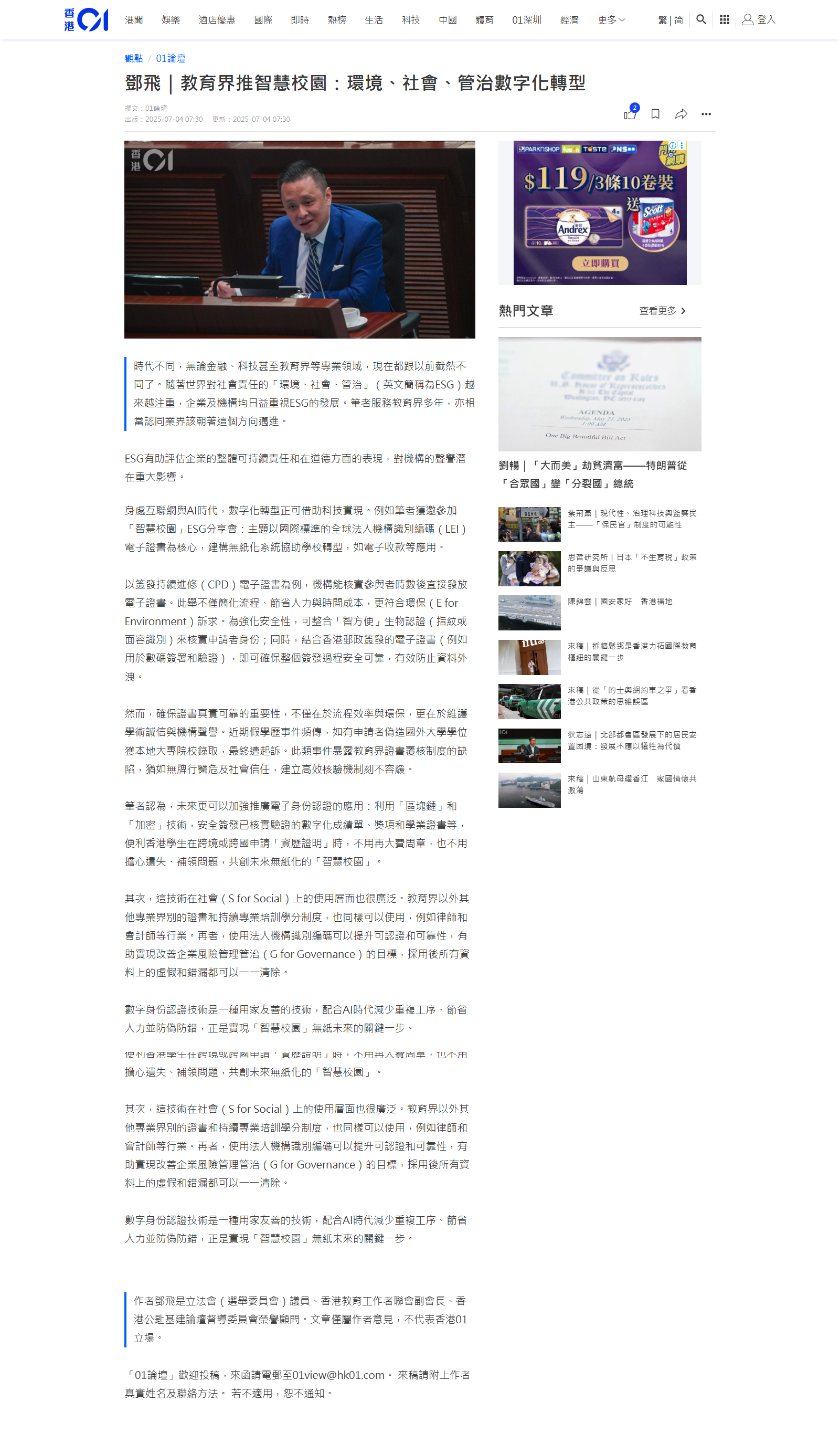Times have changed, and professional fields such as finance, technology, and even education are vastly different from before. With the world's emphasis on social responsibility in the areas of "environment, society, and governance" (ESG), both enterprises and institutions are paying increasing attention to ESG development. The author has been serving the education industry for many years, and he strongly agrees that the industry should move in this direction.
In this era of Internet and AI, digital transformation can be achieved through technology. For example, the author was invited to participate in the「Smart Campus」ESG sharing session: the theme centered around using the international standard global legal entity identifier (LEI) to construct a paperless system to assist schools in digital transformation.
Taking the issuance of Continuing Professional Education (CPD) digital certificates as an example, institutions can automatically issue the certificate after verifying the number of hours of attendance. This move not only simplifies the process, saves manpower and time costs, but also meets the demands of environmental protection (E for Environment). To enhance security, the "iAM Smart" biometric authentication (fingerprint or facial recognition) can be integrated to verify the applicant's identity. At the same time, combined with the use of Hongkong Post e-Cert for digital signing and verification, the security and reliability of the entire issuance process is ensured, effectively preventing data leakage.
However, the importance of ensuring the authenticity and reliability of certificates lies not only in process efficiency and environmental protection, but also in maintaining academic integrity and institutional reputation. Recently, there have been frequent incidents of fake academic qualifications, such as applicants forging foreign university degrees to be admitted to local colleges and universities, ultimately being prosecuted. Such incidents expose the flaws in the certificate review system in the education sector, similar to how unlicensed medical practice endanger social trust. There is thus an urgent need to establish an efficient verification mechanism.
The author believes we can strengthen the promotion of digital identity authentication applications by utilizing 「blockchain」 and 「encryption」technologies, safely issuing verified digital transcripts, awards, and academic certificates, etc., to facilitate students in Hong Kong to apply for cross-border or cross-country "qualification credentials" without having to go through too much trouble, and without worrying about loss or replacement issues, creating a paperless "smart campus" for the future.
Also, this technology has a wide range of applications in society (S for Social). Certificates for professional fields outside of education and continuing professional training credit systems can also use this technology. Furthermore, the use of LEI can enhance verifiability and reliability, helping to achieve the goal of improving enterprise risk management governance (G for Governance). After its adoption, all false and erroneous data can be eliminated.
Digital identity authentication technology is a user-friendly technology that works in conjunction with AI in reducing repetitive processes, saving manpower, and preventing counterfeiting and errors, key steps towards achieving a paperless future for 「Smart Campuses」.
Original URL: https://www.hk01.com/article/60253367?utm_source=01articlecopy&utm_medium=referral



